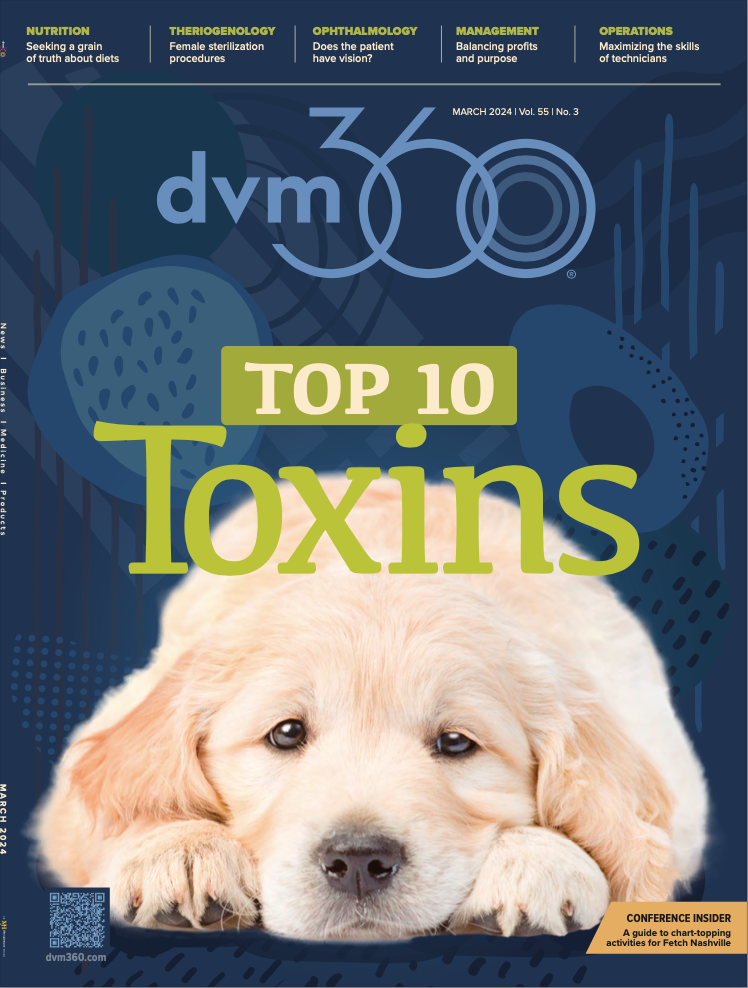Education is best when it is shared, not hoarded
A note on the importance of training and career advancement in veterinary medicine from our chief veterinary officer, Adam Christman, DVM, MBA
kamon_saejueng / stock.adobe.com

I was recently at a clinic giving a practice management seminar and a conversation about training and education came up. In a very confident, “as a matter of fact” tone, one of the veterinary technicians expressed frustration about career advancement because “those that are experienced prefer not to share their knowledge in an effort to maintain job security.” Has this sentiment ever been raised in your place of employment? Does it sound familiar? Believe it or not, it is quite common.
As a veterinarian who works full-time in continuing education (CE) here at dvm360, I believe that education is a cornerstone of our profession, and its true value is realized when it is shared rather than hoarded. Veterinary medicine is a dynamic field that constantly evolves with advancements in technology, research, and clinical practices. It is crucial for professionals in our community to actively contribute to a culture of knowledge sharing for the benefit of our patients, clients, and the overall improvement of veterinary care. Look at all the advancement in artificial intelligence, practice management software, and new ways of managing pain in our patients.
Hoarding knowledge within a team or a veterinary hospital is counterproductive and detrimental to the collective growth of the veterinary community. Employees hoard knowledge for a number of reasons. These include personal reasons like fear of competition, an attempt to keep control, or, yes, to ensure job security. I also have found it could be for their own gain like receiving praise or bonuses related to their knowledge or performance. It is something I have been hearing more as I have been chatting with practices around the country. And it truly makes me scratch my head. Collaboration and open communication foster a supportive environment where ideas can be exchanged, experiences shared, and skills enhanced. This collaborative approach not only enhances the quality of care provided but also creates a positive workplace culture, where trust and respect flourish among team members.
One of the best examples of the power of sharing knowledge is witnessed in our brand-new education program, “In the Clinic.” This is a 1-hour CE session in which an entire veterinary team is interviewed about a therapeutic topic with understanding and appreciation for their educational perspective. This innovative program was truly designed to share knowledge across the team. A recent program was on the team approach to veterinary dentistry at Heart + Paw in Lake Hopatcong, New Jersey, with Jan Bellows, DVM, DAVDC, DABVP, FAVD, as our subject matter expert. If you have not seen this webinar, I encourage all of you to view it on demand on our dvm360.com/Flex platform.
Continuing education is paramount in veterinary medicine because of the rapidly evolving nature of our field. New diagnostic tools, treatment modalities, and research findings emerge regularly. By actively participating in ongoing education, veterinarians and veterinary staff stay abreast of the latest developments, ensuring that their knowledge remains current and applicable to the ever-changing landscape of veterinary science. We welcome all of you to have a seat at the education supper table at all our Fetch veterinary conferences (new Fetch Nashville is coming up May 17 and 18, 2024). Investing in employees’ education is the single best investment one can make for the practice and patients.
Moreover, embracing CE promotes a culture of lifelong learning and professional growth. It encourages veterinary professionals to seek out new information, refine their skills, and adapt to emerging challenges. This not only benefits the individual practitioner but also elevates the overall standard of care within the veterinary community.
By withholding information, employees may inadvertently hinder the progress of the team, limit professional development opportunities, and compromise the overall standard of care. Furthermore, it can create a sense of isolation among team members, hindering the establishment of a cohesive and efficient veterinary team. No one wins, including our patients.
The importance of education in veterinary medicine is best realized when it is shared openly among all our fellow professionals. Embracing a culture of open communication and continued learning ensures that veterinary professionals stay at the forefront of advancements, benefiting the entire veterinary community and the animals under our care. To quote Malcolm X: “Education is our passport to the future, for tomorrow belongs only to the people who prepare for it today.”

2 Commerce Drive
Cranbury, NJ 08512
All rights reserved.